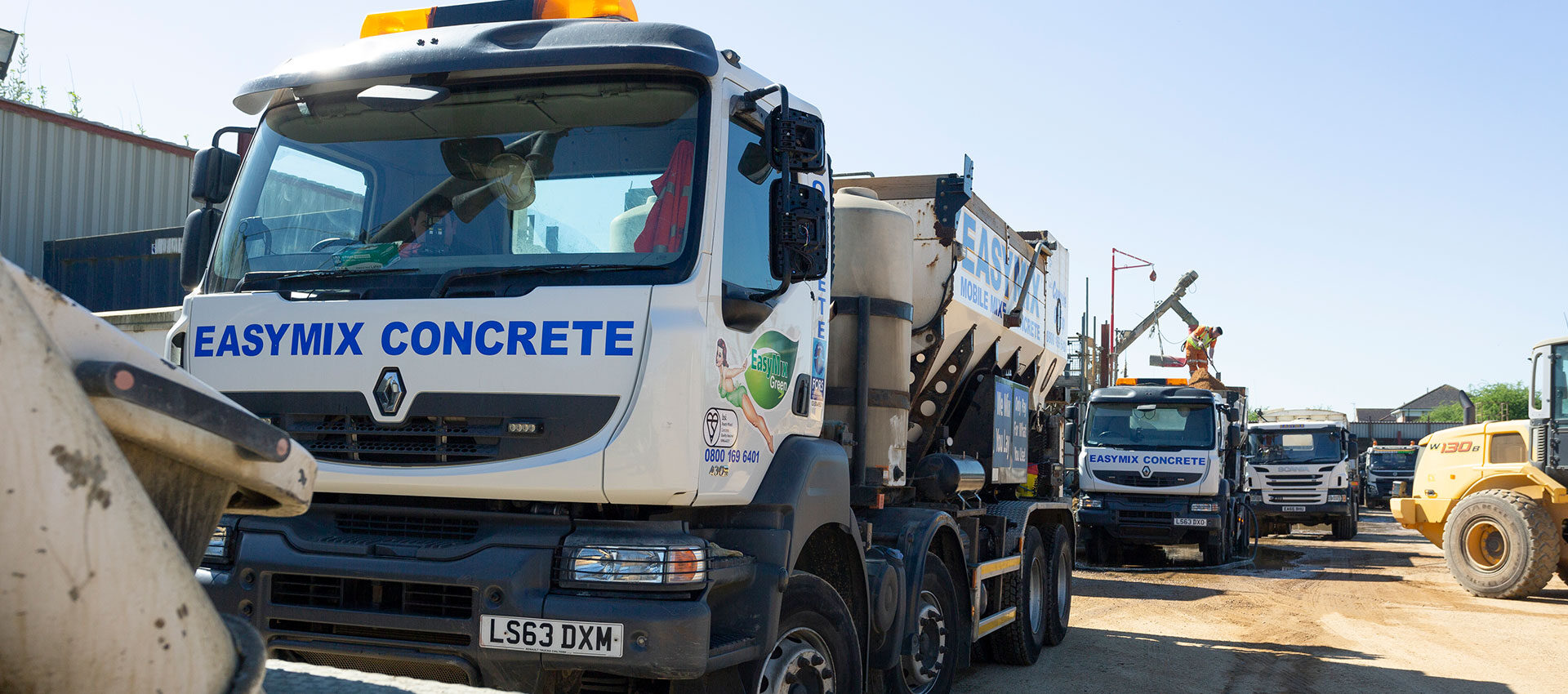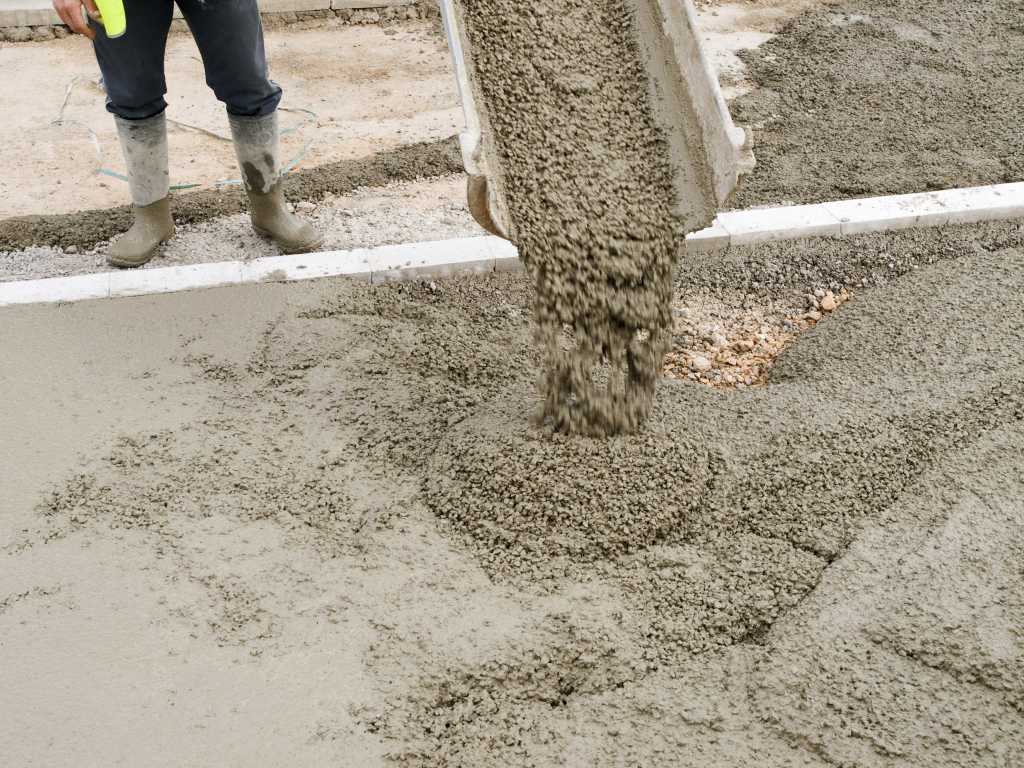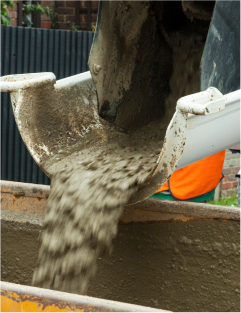
WHAT IS THE DIFFERENCE BETWEEN CONCRETE, CEMENT & MORTAR?
Despite the prevalence of the materials, many people are not clear on the difference between concrete, cement and mortar.
Some people use these terms as interchangeable descriptions for common materials, which can be confusing to DIYers and beginner builders; however, cement, concrete and mortar are three different materials. The basic difference is that concrete is a mixture of cement, water and aggregates, cement is a fine binding powder used as an ingredient in concrete (and never used alone) and mortar is composed of cement, water and sand.
As leading concrete suppliers for Greater London, Hertfordshire, Bedfordshire, Buckinghamshire and Northamptonshire, we thought we would shed some more light on the uses and benefits of each material, as well as what they’re made of, to give you the confidence to use them for the right project.
Allow us to explain in further detail!

Concrete
It’s not totally clear how long our modern concrete has been around, but the basic principle of concrete has been around for centuries. Ancient civilisations used a version of concrete to build cities and develop the world.
The uses of concrete
Concrete is used across the globe in construction projects, from the building of bridges and roads above the ground to drains and foundations below it. For your smaller projects at home, concrete is used for paving slabs, for the creation of driveways and even as the footings for your structures.
Without concrete, we’d be hard-pressed to get quite as much infrastructure built as we do today.
The benefits of concrete
The benefits of concrete are numerous. It’s a strong, durable substance with a relatively low cost, making it ideal for large structures which need to support heavy loads. Concrete can last for decades with the right care. While it may begin life as a dry mixture, it becomes a more workable, semi-liquid substance thanks to the water in concrete. That addition of water means it is light enough to transport and easy to pour into place when in a more liquid form.
What is concrete made of?
Concrete is made of varying quantities of the following: water, aggregates – such as sand or gravel – and cement. The mix can be tailored to meet the needs of an individual project, with the adjustment of quantities and the addition of other materials providing specialist qualities. You can get concrete as a ready-mixed substance to be poured straight into the spot where you need it or, alternatively, you can have it mixed on site in order to tweak it for specific needs.
Cement
The binding ingredient for concrete, cement is often used as an interchangeable name for concrete. While cement is a part of a concrete mixture, it is incorrect terminology to use it in place of concrete as, by itself, it would not be usable as a material in construction.
The uses of cement
Cement is traditionally used as part of concrete, predominantly in construction, however, it was also used in the 20th century to enclose and counteract the effects of radioactive waste materials. Cement is also crucial in making mortar and screeds for use in various design and construction processes.
The benefits of cement
Cement, being a core ingredient of concrete, has the same benefits as concrete. But as a material in its own right, the strength it offers to the mixture has to be the main benefit.
What is cement made of?
Standard cement is a mix of oxides and lime or calcium silicates, which help to facilitate a reaction when mixed with water and aggregates to create what we know as concrete. For cement that hardens simply through contact with the open air, there is a slightly different chemical make-up.
Mortar
Another material which often gets confused with concrete and cement, mortar is part of this family but is much thicker due to the components used.
The uses of mortar
Mortar is used mainly with brickwork, binding the bricks together but providing a softer finish than concrete. This is so that there is just enough give in the material for when brickwork and structures shift slightly over time. Mortar also works well as a bonding material for other masonry-based work, usually involving concrete blocks and stones.
The benefits of mortar
Mortar is thicker, which means it’s easier to control and put into place. Whether creating a new structure or repairing and replacing existing mortar, it can be laid with a trowel and doesn’t require pumping. The soft finish, as mentioned above, means it can sustain slight shifts over time without needing to replace the structure.
What is mortar made of?
Similar to concrete, mortar requires a mixture of cement, water, fine sands and a limestone additive. Different strengths are available and will better suit different work and different buildings. Mortar, it should be noted, is not as durable as concrete, meaning it is better as an addition to a project than for use as your main building material.
Hopefully this has cleared up the difference between concrete, cement and mortar — terms that are sometimes mistakenly, but understandably, interchanged.
At EasyMix Concrete, we also take the hassle out of choosing the right concrete for your project, be that within the construction trade or for a home DIY project. Our professional team has the knowledge to recommend the most suitable mix for your needs and can help arrange delivery at a time to suit you.
So whether you need concrete for foundations, footings or floors, we’ll be happy to help you with quality products and excellent service – contact us today.
Call us on 0800 169 6401
Locate your nearest branch
Find out if we deliver concrete to your area
Concrete Calculator
Calculate how much you will need
fast, reliable delivery!

This website uses cookies to enhance your browsing experience and deliver personalised ads. By clicking “Accept All Cookies”, you agree to the storing of cookies on your device to enhance site navigation, analyse site usage, and assist in our marketing efforts.


